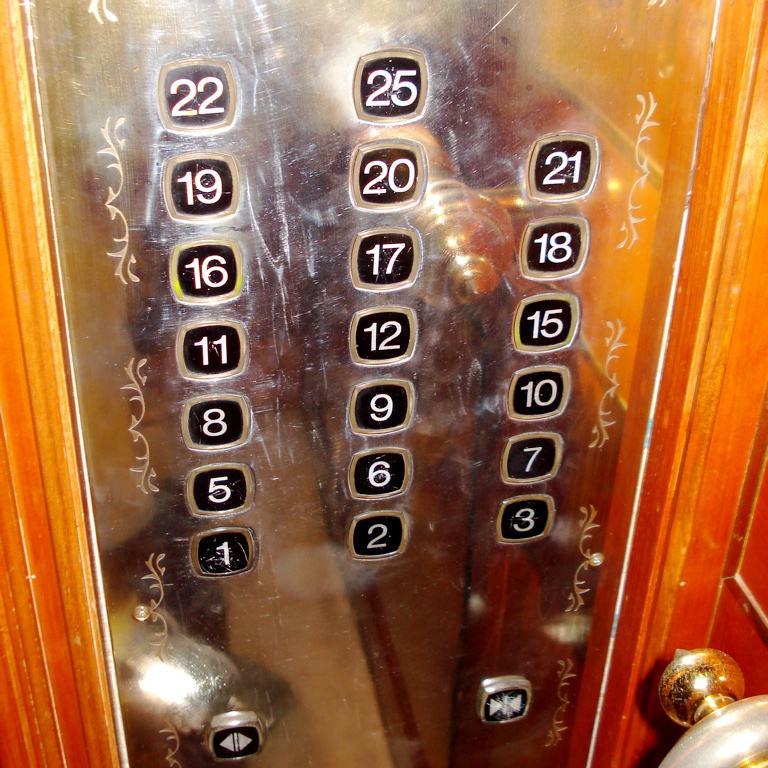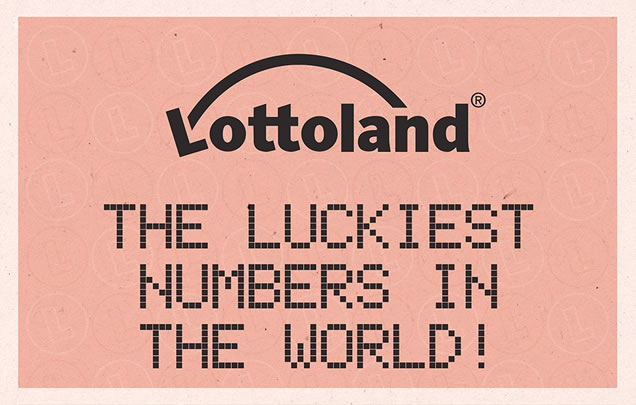13 is one of the most controversial numbers and often divides the opinion of the numerologists. Some experts believe that house number 13 in Indian numerology will bring bad luck to the house owner and thus should be avoided altogether. On the other hand, house number 13 Feng Shui is not considered unlucky and neutral. Which reasoning is valid and should be followed depends on the individual Indeed, people who believe in house number numerology always have a strong opinion about the number 13. 4 is well known to be an unlucky number because 四 sounds similar to 死 (sǐ), which means "death" in Chinese. People will go to extremes based on superstitions of the number 4.
Houses and apartments that have 4 in the address number will sell for much less than ones without. Mentioning the number four to an ill family member is considered to be highly offensive, and giving anything with 4 on it to someone can be seen as a death threat. It's considered unlucky to have 13 guests at a dinner party, many buildings don't have a 13th floor and most people avoid getting married or buying a house on a day marked by this dreaded number. Chinese dwell in superstitions and beliefs and have a huge dependence on numbers in their day to day lives. They lay great emphasis on the use of numbers which, according to their culture, may be considered lucky or unlucky. Like 5, 7 has both positive and negative connotations in Chinese culture.
For the positive side, 七 sounds like both 起 (qǐ), which means "start" or "rise", and also 气 (qì), which means "vital energy". Seven is also seen as a lucky number for relationships. The Qixi Festival (七夕節), also known as the Chinese Valentine's Day, falls on the 7th day of the 7th month in the lunar calendar. The 7th month is also known as the "ghost month" in China, where ghosts and spirits are believed to rise from hell to visit earth.
While ghosts may be seen as omens, the ghost festival in the 7th month is widely celebrated. 7 may also be considered unlucky because 七 sounds like 欺 , meaning "cheat". In China, it is customary to regard even numbers as being more auspicious than odd ones. So, gifts are given in even numbers for the celebration of all occasions. No. 8 has long been regarded as the luckiest number in Chinese culture. With pronunciation of 'Ba' in Chinese, no. 8 sounds similar to the word 'Fa', which means to make a fortune.
It contains meanings of prosperity, success and high social status too, so all business men favor it very much. Moreover, in some areas of China, people prefer to pay much more money for a telephone number with 8 in it. They also favor residences on the eighth floor of buildings. In 1990s, a vehicle identification number with 8 was once auctioned off for 5 million Hong Kong dollars.
The idea of lucky numbers goes back through many millennia. For the ancient Greeks seven was, indeed a special and fortunate number. This idea of perfection was carried through into the Judaic tradition, seven being the number of days in the week, the ages of man and the gifts of the Holy Spirit. The pinnacle of ecstasy or good fortune is said to lead us to seventh heaven, and the rainbow – God's signal, after the Flood, of his treaty with humankind – is composed of seven colours.
Similar beliefs about rainbows exist in many other cultures. In Italy, the number 17 is as unlucky as 13 is to Americans — for very good reason. The Italians write 17 as XVII, which can be rearranged to form VIXI, which roughly translates to "I'm now dead" or "my life is over." Not a pleasant thought. Carmakers and other manufacturers avoid using the number when naming products or assigning model numbers, just in case.
Ironically, the dreaded 13 is actually considered lucky in Italy, despite its reputation in many other parts of the world. Is well known to be an unlucky number because 四 sounds similar to 死 (sǐ), which means "death" in Chinese. Did you know that if you press a Chinese elevator button to go to the 50th floor of a building, you may actually only be going to the 35th floor? This is because many buildings in China not only omit the 13th floor, but are also missing any floor containing the number 4, which is considered to be the unluckiest number in Chinese culture. The Chinese have many superstitions about numbers, often related to similar-sounding words in the Chinese language, which are called homophones.
Often, numbers that are visible in the background of an image might be innocent in one country but provoke fear in another. For example, a photo of a soccer player with a big number 17 on his jersey might look fine to audiences in most parts of the world, but in Italy this number is considered very unlucky. In fact, at the winter Olympics in Turin, the 17th curve on the bobsled track was referred to as "Senza Nome" instead of referring to it with the unlucky number 17. Also, make sure to check the number of people or items you are displaying in a given picture — the number can be viewed as unlucky in some markets. For some Vietnamese, it's considered bad luck to have 3 people in photos. 6 is pronounced "liu" in Mandarin Chinese, and this sounds like the Mandarin Chinese word meaning "flowing, smooth, or frictionless".
Therefore, the number 6 has the meaning of "everything will go smoothly" and is considered lucky especially where it occurs in multiples. In feng shui, the number 6 represents authority and power. Forget individual numbers — the very act of counting itself comes with a series of positive and negative superstitions. One folk remedy suggests that counting the number of warts on your body and revealing the number to a stranger will cause the warts to go away.
Of course, you should never count money, your children or your possessions, as this can make them go away as well. The same is true for livestock — like counting chickens before they hatch — as well as fish and gambling winnings. Some superstitious types claim that weighing babies at birth also brings bad luck, as does counting the stones in ancient monuments. Whether inspired by biblical stories or the legends of ancient people, these so-called lucky or unlucky properties assigned to numbers have real meaning to many people. Based on little more than a story, where the origin is often unknown, people will alter travel plans, delay purchases or spend their life savings on lottery tickets.
Wonder where these numbers earned their reputations? Read on to learn about some of the most popular superstitions in the world of numbers. Because of its negative association with death, most people consider this number to be so unlucky that many buildings in China do not even have a "fourth" floor. The number 4 is also unlikely to appear on house/door numbers and car license plates.
Whenever, possible, many people will also try hard to avoid choosing telephone numbers that contain the number 4. But the number four is considered unlucky because it sounds a lot like the word for "death," and as a result Chinese buildings often lack a fourth floor . Three lucky numbers are overrepresented on plate endings, with 12 or 13 percent each.
The pronunciation of the number four in Japanese is very similar to the word death, and because of this, four has been considered bad luck in Japan, Korea and China. It is considered very bad luck to give a gift that is made up of four pieces to someone. Many buildings in heavily Asian areas do not have a fourth floor, much like the way North American cultures treat the number 13. 3 (三), pronounced san, is considered lucky due to its similarity in sound to the word that means birth.
is 7 a lucky or unlucky number - The Qixi Festival Additionally, this number represents the three stages in the life of humans - birth, marriage, death - that adds to its importance in Chinese culture. In China, lucky numbers have pronunciations that are similar to words with lucky meanings. Number 8 holds huge significance as a lucky number. To a lesser extent 2, 6, and 9 are considered lucky. As well as these general number superstitions, fengshui and the Chinese zodiac dictate different number luck for different places/people. In a world where the majority of people don't identify themselves as particularly superstitious, it's astounding just how much impact superstitions about numbers can have on the economy.
I was shocked to learn that businesses lose almost a billion dollars each time the 13th of the month just happens to fall on a Friday. While researching this article, I also learned that people in some Asian countries will pay a premium simply for a license plate or street address that contains a lucky number. Manufacturers and retailers have caught on as well, assigning random prices to products that rely more on the inclusion of lucky numbers than on any retail strategy or research.
Aside from Christians, Parsi culture and people from all around the world regard this as an unfortunate number. In Japan, the number 24 is considered unlucky and deadly. The reason for this notion is that the number 24 sounds close to the term for stillbirth. Chinese numerology might seem like an obscure field, but this unique set of beliefs plays a big role in modern Chinese culture.
Read this article to gain insight into this quirky aspect of modern Chinese life. Others believe it is because of the tie-in with 13 and the lunar cycle. 13 is the exact number of full moons in a calendar year, and since people have thought that the moon controls emotion and makes people a bit crazy, then 13 is bad luck. In many Persian cultures, 13 is unlucky as well, showing that this superstition crosses cultural borders. And of course, Friday the 13th is considered very bad luck.
7 was widely used in ancient Chinese culture, for example the Seven Treasures for Buddhist Scripture refer to gold, silver, colored glaze, coral, amber, seashell, and agate. Another example is the Double Seventh Festivalwhen the Milky Way Lovers can have their annual meeting only on July 7th. Therefore, July 7th is regarded as the Chinese Valentine's Day. Thus, some buildings in East Asia omit floors and room numbers containing 4, similar to the Western practice of some buildings not having a 13th floor because 13 is considered unlucky. Where East Asian and Western cultures blend, such as in Hong Kong, it is possible in some buildings that the thirteenth floor along with all the floors with 4s to be omitted.
Thus a building whose top floor is numbered 100 would in fact have just eighty one floors. Similarly in Vietnamese, the number 4 (四) is called tứ in Sino-Vietnamese, which sounds like tử (死) in Vietnamese. The numbers 3, 5, and 8 are generally considered to be lucky, while 4 is considered unlucky.
These traditions are not unique to Chinese culture, with other countries with a history of Han characters also having similar beliefs stemming from these concepts. 6 (六), pronounced liu, is considered lucky as it sounds like the word that means 'to flow', and can indicate smooth progress in life. Similar to 8, 6 is preferred in number plates and phone numbers. When a couple gets engaged, the man customarily offers a gift to the girl's family which is usually money and this gift signifies a harmonious life for the couple. In Mandarin, 7456 (qī sì wǔ liù) sounds like "to make me angry" (qì-sǐ wǒ -le), and 250 can mean "imbecile" and is sometimes used as an insult.
Many customers do not want to visit an address that conveys something negative, and some might even consider it bad luck to send correspondence or make deliveries to such a location. The meaning of numbers can be different across cultures. The spiritual meaning could be auspicious or ominous. The thing that should be considered is that some numbers that are considered unlucky in some countries are lucky in other countries. 8 is a popular number amongst business people, senior managers and sportspersons. If you wonder why so many successful people are fixated on number 8 house Feng Shui, it is easy; the number promotes abundance and ambition.
Many people prefer house number 8 in Indian numerology as they believe that the number will perfectly compliment their personal and professional growth goals. Some people leapfrog towards financial freedom, stable family and always have their next goal-to-achieve penned down. 8 house number numerology invites prosperity and wealth of epic proportions.
There comes a time in everyone's life when they are at the crossroads of life. Their professional and personal life is stagnant, non-satisfactory, or needs a change desperately. For such people, it is best to introspect and rethink the things that matter to them.
As per house number 7 in Indian numerology denotes a sense of personal vibration, meaning it is a number that promotes internal thoughts and brings out clarity. Thus, house number 7 Feng Shui is most suitable for introverts and deeply thinking about what to do in their lives. The number 1 is considered the beginning of a journey and is regarded as a good number for the house.
This number is suitable for self-employed and single people who are just starting their personal or professional life journey. House number 1 in Indian numerology denotes a strong sense of independence and ambition. People who have a great sense of curiosity and the urge to reach newer heights in whatever work they are doing are best suited with house number numerology 1. It is also considered as an auspicious number in Feng Shui. Owners residing in house number 1 Feng Shui are destined for a positive start in any new journey that they are about to partake in personal or professional life. It is often said that numbers and mathematics rule the universe and the person who understands the importance of certain numbers, will have complete control over their life.
Today, house number numerology has gained immense popularity globally. This number is unlucky because it sounds very similar to the word for death, 死 . It's also uncommon to have room numbers ending in 4, especially in hospitals. 2, pronounced "er", is considered lucky because "all good things come in pairs". Among young people in China, the number 2 is also used to describe the frank, innocent, reckless personality. They believe "2" reflects a positive attitude towards life.
In Chinese culture, lucky numbers can bring good luck and fortune to their life. The number 3 is an unlucky number in relationships. In Mandarin, the number 3 can sound like the word "apart," so it's bad luck if it involves weddings or romance in general.
However, apart from situations regarding relationships, the 3 is considered neutral or even positive. In Chinese numerology, there are lucky numbers, unlucky numbers, and neutral numbers. Of course, context is very important when selecting numbers, and there are many ways to interpret them from one situation to another.
One can communicate a subtle message to another person or make a big announcement with numbers, especially when it comes to date and time selection. For example, the Beijing Olympics began on August 8, 2008, with the ceremony beginning at 8 minutes and 8 seconds after 8 p.m. In fact, the Chinese are so superstitious about numbers, that they will often spend big money for "lucky numbers" in their life. A man in Hangzhou listed his license plate, A8888, for $140,000 online. Although Seven is generally considered a propitious number, it is at times disliked in China.




























No comments:
Post a Comment
Note: Only a member of this blog may post a comment.